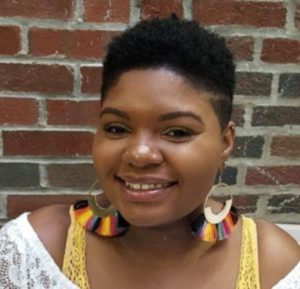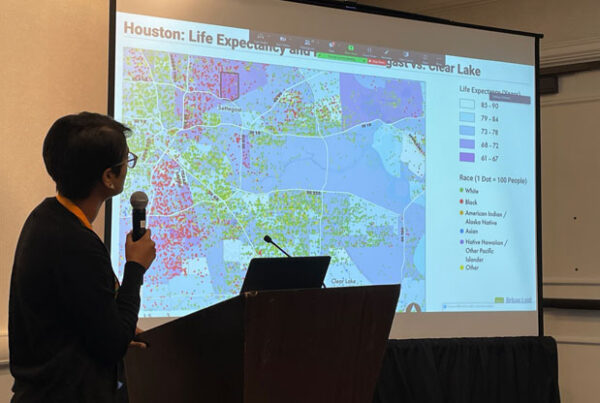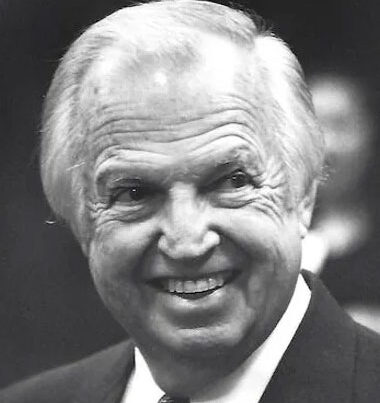ULI’s Building Healthy Places Initiative is delighted to announce and congratulate the participants in the fourth cohort of the ULI/Randall Lewis Health Mentorship Program, which is generously supported by ULI Foundation Governor Randall Lewis. We received applications from many outstanding students and mentees were chosen based on a highly selective evaluation process.
The selected graduate students are: Aleiya Als, Amelie Rives, Evelyn Mayo, Madelaine Britt, Miguel Castro Jr., and Miluska Franco.
This program supports learning and sharing about health and real estate among graduate students and ULI members. In addition to being matched with a ULI Full Member mentor based on professional interests, mentees earned the opportunity to attend the 2021 ULI Fall Meeting in Chicago and the 2022 ULI Spring Meeting in San Diego, where they will experience Product Council meetings and health-focused programming alongside their mentors. To find out more about the program and how to apply for future cohorts visit www.uli.org/healthmentors.
Learn more about the six Cohort 4 mentees and their ULI member mentors below.
 Aleiya Als
Aleiya Als
Master’s Student, Architecture
University of Buffalo
Aleiya Als, a current graduate student at the University at Buffalo, is pursuing her Master’s in Architecture with a minor in Environmental Design. She has participated in many programs that contribute to her outlook on the world through architecture. One way she has done this is through her Graduate Research Group, which specialized in inclusive design. She has also participated in an education program which brought architecture into the inner city at Buffalo Public Schools. This program infused architecture pedagogy with the school curriculum and helped to introduce the profession as a career path for others. She hopes to bring similar programs to other cities so that those who are affected by their environment can take a stand and have a say on the betterment of their community.
 Mentor: James A. Moore, PhD, Global Solutions Director, Cities & Places, Jacobs (Urban Revitalization Council, Blue Flight)
Mentor: James A. Moore, PhD, Global Solutions Director, Cities & Places, Jacobs (Urban Revitalization Council, Blue Flight)
James A. Moore has over thirty years of technical and managerial experience and leadership in architecture, urban design, community planning, and urban regeneration. With Jacobs, he is helping lead and expand the company’s Cities & Places practice worldwide, with an emphasis on urban and suburban redevelopment and revitalization. James has a deep understanding of cities as complex “systems of systems” in which all component elements are integral to strategy, planning, design, development and operations. He promotes a comprehensive, multi-disciplinary process, built on intensive data collection and analysis, and broad-based, interactive community engagement, looking to balance the physical development of the built and natural environments with sustainable economic growth and continual socio-cultural advancement. He has particular expertise in organizing and managing large, complex urban and suburban regeneration projects, including those focusing on the creation of walkable, bike-friendly, transit-oriented mixed-use environments.
A Full member of the Urban Land Institute for over twenty-five years, James has served as Chair of the ULI Tampa Bay district council and Chair of the Urban Revitalization Council (URC) product council. He participated in the development of ULI’s “Ten Principles for Building Healthy Places” and continues to serve as a mentor within the Building Healthy Places program.
 Amelie Rives
Amelie Rives
Master’s of Urban and Regional Planning
Virginia Commonwealth University
Amelie Rives is a recent MURP recipient from Virginia Commonwealth University’s Wilder School of Government and Public Affairs. Her graduate work focused on displacement and asset-based community development, culminating in a participatory equitable development plan for a community-based organization in Richmond, Virginia. Amelie believes that equitable and inclusive development improves the health of disinvested communities by embedding the self-determination and agency of community members in revitalization and redevelopment planning practices.
After receiving her B.A. in Sociology at Roanoke College and prior to attending graduate school, she saw the importance of prioritizing the social determinants of health and community voice when she worked in financial empowerment, wealth-building, and banking access in Roanoke, Virginia. Based in Richmond, Amelie currently works as a Community Impact Analyst at Virginia Community Capital (VCC), a community development financial institution (CDFI) that serves historically and systematically marginalized communities in Virginia. VCC’s focus areas allow Amelie to concentrate on the diverse intersections of planning and lending, as well as healthcare access, food systems, climate equity, small business, and affordable housing. Amelie enjoys cooking and baking gluten free treats, spending time with her two brindle rescue dogs, and riding her bike to read books on Richmond’s James River Trail System.
 Mentor: Jeff Kingsbury, partner and Chief Connectivity Officer, Ancora (Redevelopment and Reuse Council)
Mentor: Jeff Kingsbury, partner and Chief Connectivity Officer, Ancora (Redevelopment and Reuse Council)
Jeff Kingsbury is a partner in Ancora, a real estate investment and development firm driven by science, research, and healthcare innovation in partnership with and proximate to leading U.S. anchor institutions. He has been a principal in the development and disposition of over $630 million in real estate and consulted on planning, development, and regulatory issues for private sector clients as well as cities, counties, and non-profits in sixteen states, and abroad. Jeff holds degrees in urban planning and development and environmental design from the College of Architecture and Planning, Ball State University. He is the former chairman of the Redevelopment and Reuse Council and the Sustainable Development Council of ULI, in addition to serving on the Institute’s Advisory Committee on Climate Change, Land Use and Energy, and Global Awards for Excellence jury. Jeff co-authored the book, Developing Sustainable Planned Communities, and was a peer reviewer for Professional Real Estate Development, 3rd edition.
 Evelyn Mayo
Evelyn Mayo
Master’s Student, City and Regional Planning
University of Texas, Arlington
Evelyn Mayo is a graduate student at the University of Texas Arlington pursuing her master’s degree in City and Regional Planning. In 2017, she received a Bachelor of Arts from Barnard College at Columbia University in Environmental Science and Race and Ethnicity. She is the Co-Founder of RAYO planning, a non-profit planning firm that works with low-income neighborhoods to address environmental justice, fair housing and community development issues caused by racist zoning and land use policies. Evelyn is also a Fellow and Professor at Paul Quinn College, where her courses and research are focused on how industrial zoning causes environmental justice issues, and how neighborhoods can use grassroots urban planning as an advocacy tool. Evelyn is Chair of the Board of Downwinders at Risk, a 27-year-old DFW based clean air advocacy group, which most recently got national attention for the campaign to shut down and clean up the illegal dump “Shingle Mountain”. She believes that community organizing and advocacy are key to building more healthy, democratic and equitable places, by bringing underrepresented communities to the decision making table.
 Mentor: Ed Hernandez, principal, Bay East Legacy & Associates (Placemaking Council)
Mentor: Ed Hernandez, principal, Bay East Legacy & Associates (Placemaking Council)
Ed Hernandez, Principal of Bay East Legacy & Associates, has been serving the San Leandro (CA) community for years as an advocate for the needs of small businesses and local families. A first generation American, he and wife Katherine chose San Leandro as their home due to its diversity and great community to raise their two daughters.
In his role at Bay East Legacy & Associates, he creates and develops positive consulting and entrepreneurial engagements in real estate, finance, and strategy as well as diversity and inclusion that leverage best practices to drive effective and efficient outcomes for all stakeholders. He is also a former Councilmember, where he championed the community’s health, safety, and fiscal recovery needs – prioritizing vital safety-net programs to assist local families. He has led efforts to recruit and retain local businesses, including expanding job creation opportunities.
In his spare time, Ed can be found cycling with friends and family, volunteering at a food pantry, providing thought leadership in ULI’s Placemaking Council or sharing his expertise in Real Estate development and brokerage solutions, that leverage his education in Financial Management (CSULB), Strategic Management (CSUEB) and Organizational Development (USF) studies.
 Madelaine Britt
Madelaine Britt
Master’s Student, Urban Planning
New York University
Madelaine Britt is a Master’s in Urban Planning candidate at New York University, Wagner School of Public Service with a focus on affordable housing and health equity. Originally from Rochester, NY, she is passionate about Rust Belt cities and working at the intersection of organizing, policy and participatory research. She is a Policy Analyst with the Citizens Housing and Planning Council, the co-chair of the urban planning student association, and an active member of her local tenant union. Before attending NYU, she worked as a city planner for New York City, developing placemaking and small business programming in partnership with community leaders in East Harlem and Washington Heights. Additionally, she served as a Congressional Hunger Fellow, working with the DC Food Policy Council to help develop a DC Good Food Investment Fund. She is very excited to join this year’s cohort of the ULI Randall Lewis Health Mentorship program.
 Mentor: Tom Woliver, founder and Co-President, Oxland Group (Community Development Council, Green Flight)
Mentor: Tom Woliver, founder and Co-President, Oxland Group (Community Development Council, Green Flight)
Tom is the Co-President and founder of the Oxland Group, a full-service real estate development and investment company. With decades of experience in community development, land acquisitions, and home building, the Oxland Group acquires, entitles, develops, and sells value-add residential land investments and landbank transactions in Texas, on behalf of JEN Partners, LLC, a New York based private equity firm. Tom has over 25 years in the real estate industry building a vast network of best-in-class consultants, vendors, and relationships throughout the industry. Currently, Tom is working on a variety of projects across Texas, providing forward thinking solutions at all different scales. In addition to Tom’s real estate experience, Tom has been a pioneer in implementing various technological strategies, startups, and partnerships throughout the real estate platform with developers, builders, and landowners. Prior to Oxland, Tom served as Vice President at Hillwood Communities. During his tenure at Hillwood, Tom was the driving force behind Hillwood’s Live Smart Communities including Harvest (First Agri-hood in Texas), Pomona, Wolf Ranch, and Pecan Square. Prior to Hillwood, Tom worked for TBG partners as a Land Planner and Landscape Architect in Austin and Dallas. Tom’s design and consulting background at TBG was foundation building for the ability to look at real estate solutions with a unique approach. Prior to TBG, Tom graduated from Texas A&M University with a Landscape Architecture degree.
Tom is an active member on the National levels of the Urban Land Institute and currently serves as the Chair for the ULI National Community Development Product Council Green Flight. He is a sought-after public speaker and facilitator and has been featured in numerous articles about community development, technology, healthy living, and in the food and real estate movement.
 Miguel Castro Jr.
Miguel Castro Jr.
Master’s Student, Architecture
University of Wisconsin-Milwaukee
Miguel is a service-connected United States Marine Corps combat veteran with a bachelor’s degree in Industrial Design from the Milwaukee Institute of Art & Design. He has spent the last 10 years working in the fields of community development, urban agriculture, and small-scale commercial worm farming with processes rooted in social infrastructure development. Miguel is currently a graduate student intern with the Affordable Housing Institute’s Healthy Secure Housing initiative in Milwaukee, WI. There, he works closely with civic and industry leaders on the Milwaukee Advisory Council to help strategize core initiatives and tactics to develop healthy and secure housing. With a passion for innovation, Miguel has turned his attention towards developing open-source ADA complaint, age-in-place housing with spatial justice taking center stage. A goal of his research is to influence local policies that currently prevent truly accessible and affordable housing from being developed in new and innovative ways. This project brings together a wide range of partners to ensure best practices and applicability through robust collaboration and planning.
 Mentor: Andrew Watkins, principal, SWA Group (Residential Neighborhood Development Council)
Mentor: Andrew Watkins, principal, SWA Group (Residential Neighborhood Development Council)
Andrew Watkins is an architect, planner and urban designer with over 20 years of professional experience. As a principal at SWA in Southern California, his work focuses on large-scale urban design projects that explore the confluence of ecology and urbanism. Andrew has led the design of community plans, urban design and new city planning projects in diverse locales including throughout the United States, China, Indonesia, India, South Africa, Botswana, Ethiopia, Germany, Italy, Armenia and Mexico.
Andrew’s work focuses on place making and creating high-quality public realms. His project experience includes urban and suburban revitalization as well as green-field development, with new community work totaling over 20,000 acres of development featuring more than 50,000 homes, retail, commercial and light industrial districts. Andrew has particular interests in projects that engage wellness and the ecological systems of food, mobility, waste, shelter and water.
He participates as a Visiting Professor for a yearly Urban Design studio at Cal Poly Pomona and has served as a part-time lecturer at the University of Southern California. A Full Member of ULI, he is part of the national Residential Neighborhood Development Council, Health Leaders Network and has served locally as both a co-chair for the OC/IE Pro-Bono Technical Assistance Panel (TAP) and a member of the Housing Council. Andrew holds a Bachelors of Architecture from Syracuse University and a Masters of Architecture in Urban Design from the Graduate School of Design at Harvard University.
 Miluska Franco
Miluska Franco
Master’s of Infrastructure Planning
New Jersey Institute of Technology
Miluska is a recent Master’s of Infrastructure Planning recipient from the New Jersey Institute of Technology in Newark, New Jersey.
Immigrating here from Peru at a young age, Miluska believes her role in this field will always be to prioritize the improvement of housing and public spaces in service to the immigrant community. Throughout her undergraduate career, her work has been recognized for excellence in housing and community activism through scholarships and distinction upon graduation. She received her Bachelor of Architecture from the J. Robert and Barbara A. Hillier College of Architecture and Design, and during this time she spearheaded an afterschool architecture program in conjunction with KIPP middle schools to make architecture accessible to Newark students at a young age. During her graduate career, she’s been involved in international planning projects in Lima, Peru and now in Athens, Greece.
Professionally, this past year she’s been involved in the design of the Myrtle Beach Masterplan in South Carolina. Miluska is currently working as an urban and architectural designer at FXCollaborative and is interested in designing at both scales. Miluska aspires to create spaces that invite communities into the design process.
 Mentor: Neal Payton, senior principal, Torti Gallas + Partners (Transit-Oriented Development Council)
Mentor: Neal Payton, senior principal, Torti Gallas + Partners (Transit-Oriented Development Council)
Neal is a Senior Principal at Torti Gallas + Partners and the founder of the firm’s West Coast office in Downtown Los Angeles. Focused on the infill and refill of cities and towns, he leads the office’s efforts at designing residential and mixed-use buildings in urban and urbanizing locations and in the development and redevelopment of neighborhoods and downtowns. Working across scales, the common themes in all of his efforts are: connectivity to transit networks, a focus on walkable urbanism; infill; public participation in the design process, and the inextricability of urban design with economic development. His article entitled, “Transit Oriented Development” is included in the recently published, Architects of Community: The Work of Torti Gallas + Partners, (Vendome, 2017).
Neal’s efforts have been honored with multiple times with national awards for Urban Design from the American Institute of Architects, the Congress for the New Urbanism, and the Urban Land Institute, among other organizations. Neal has a Bachelor of Architecture from Carnegie Mellon University, Master of Architecture from Syracuse University and has served on the architecture faculties of the University of Virginia, Washington University in St. Louis, Rice University, and The Catholic University of America.



